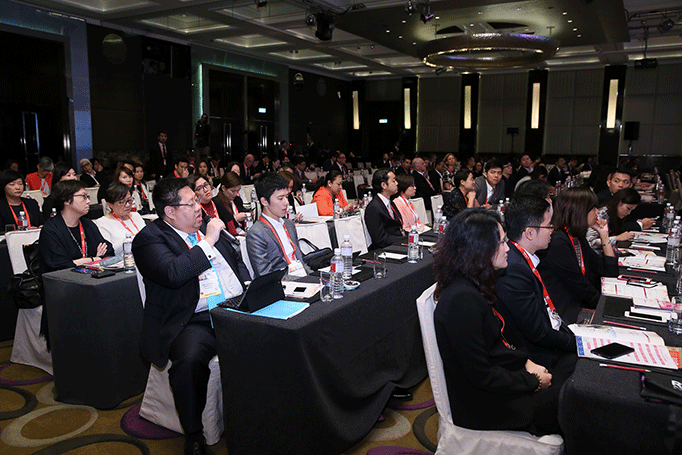
ICSC’s annual RECon Asia conference kicked off Tuesday in Taipei, Taiwan, drawing hundreds of retail development executives from across not just Asia, but other parts of the globe too.
And while headlines of late cite slowing growth in China, shopping center development remains robust in there and across the region, as developers and retailers race to meet the demands of a steadily growing middle class. Asia’s middle class tripled from 565 million people in 1990 to 1.9 billion in 2008, according to the Asian Development Bank, and by 2030, Asia will have 66 percent of the world’s middle class, says the Organization of Economic Cooperation and Development. In that year Asia’s middle class consumers will spend $32 trillion, accounting for 59 percent of global middle class consumption.
“Asia will be the center of gravity of in the world’s economy,” predicted Parag Khanna, a managing partner of international strategic advisory firm Hybrid Reality, noting that the region’s 4 billion people outnumber the 3 billion in the Americas, Europe and the Middle East. Massive infrastructure investment is opening up massive retail development opportunities in new and expanding cities and along the corridors of high-speed transportation that is linking them, he said.
While China’s growth rate has slowed — its gross domestic product rose 6.9 percent in the third quarter, down from 7 percent in the first two quarters, according to its statistics bureau — two thirds of the country awaits development, Khanna noted.
The number of malls in China has jumped 40 percent in just the past four years, according to Deloitte, and will total 4,000 by the end of this year. The country is adding retail space equivalent to 300 regional malls each year, as it shifts from an export-based to a consumption economy, said Rene Tremblay, president of Taubman Asia. The company, a subsidiary of U.S.-based Taubman Centers, will open lifestyle projects in Xi’an and Zhengzhou next year, and next week opens The Boulevard at Studio City, in Macau.
Growth is equally dramatic elsewhere in the region. In Thailand, for instance, developers are spending 150 billion baht (about $3.7 billion) to expand shopping space there from the 18 million square meters now to 21 million square meters by 2017, according to the Thai Shopping Centre Association. Experts at RECon Asia also zoomed in on rampant growth in Indonesia, the Philippines, South Korean, Vietnam and elsewhere.
RECon Asia was opened this year with an address by the country’s president, Ma Ying-jeou, who extolled Taiwan’s economic performance.
“Taiwan’s 3.7 percent growth last year was the highest growth rate among Asia’s ‘Little Dragons (Hong Kong, Taiwan, Singapore, and South Korea),’” he said. Taiwan’s unemployment, at 3.7 percent, is now at its lowest point in 15 years, as the country enjoys an unprecedented tourist boom, he noted.
All the region’s major developers are present at this year’s meeting, including such headline names as Singapore-based CapitaLand; Ayala Land and SM Prime, from the Philippines; Siam Future Development, Bangkok, Thailand; Taubman Asia, based in Hong Kong; and Westfield. They are joined by such local developers as Taroko Development Corp., Global Mall Co., and Taipai 101, all from Taiwan. The meeting is being held in the literal shadow of Taipai 101, Taipei’s iconic skyscraper and luxury mall, once the tallest building in the world.
Retailers, architects, entertainment concepts and retail real estate consulting firms are also heavily represented at the conference, which runs through Wednesday.
“Whatever the ups and downs of various countries’ economies at any given time, you’re seeing formidable retail growth throughout the region, and you certainly get a sense of that at this meeting,” said Mike Morrissey, ICSC’s executive vice president and chief global officer. “RECon Asia not only brings developers and retailers together, it’s also an invaluable forum for the exchange of information about the region’s many, diverse markets.”


